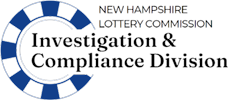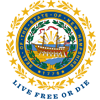Frequently Asked Questions (FAQ’s)
Commonly asked questions and answers about a specific topic.
-
1. How are licensees selected for an audit?
Each year the NHLC prepares an audit plan based on a risk assessment analysis that takes into consideration the following factors:
- A licensee’s position in the standard audit rotation.
- The financial size of the licensee based on monthly financial reporting.
- Prior audit findings of non-compliance or risk of fraud.
- Instances of non-compliance documented by the NHLC Enforcement Team.
-
2. What should a licensee expect during an audit?
In general, during the course of the audit, NHLC auditors will conduct numerous inquiries, examine and review a variety of documents and records, make a number of requests, and perform onsite observations.
The following activities will be conducted throughout the audit:
- An engagement meeting to officially start the audit, during which NHLC auditors will describe the objectives and scope, set expectations, request documents, and establish a working relationship with the licensee.
- Site visits to observe daily operations, internal control procedures, and compliance with policies and/or regulatory requirements.
- A review of written internal controls, games of chance related contracts, financial statements and source documents provided by the licensee.
- A meeting to review preliminary audit findings and obtain clarification or confirmation on open items.
- A written draft report of findings and recommendations with a request for a licensee response to each finding.
- A final audit report to include the licensee's response to each finding and recommendation from the draft report.
-
3. How can the licensee facilitate the audit process?
Be responsive to requests for documentation and information. Organize the documents logically. Approach each audit as an opportunity for improvement benefiting all parties involved.
-
4. What are the NHLC auditors looking for?
The audit team looks for compliance with NH State statutes and administrative rules related to charitable gaming, including proper payments to the state and charities. Auditors assess the adequacy of the licensee’s internal controls to ensure they mitigate the risk of fraud or theft and they assess the overall control environment to ensure a top-down model for mitigating fraud is in operation.
-
5. Why do I need written internal controls?
The cash intensive nature of the gaming industry exposes game rooms to an elevated risk of loss. It is not practical to record all table game transactions and most cash and cash equivalents are not recorded until they are removed from drop boxes and counted; consequently, the risk of fraud and theft in gaming operations is greater than in most other industries. Minimizing these risks requires the development of procedures that control the authorization, accountability, and safekeeping of the gaming operations' major asset, cash. Controls must be established and procedures implemented to safeguard assets and ensure that each gaming operation:
a. Segregates functions, duties, and responsibilities in accordance with sound business practices.
b. Prepares accurate, complete, legible, and permanent records of all transactions pertaining to gaming revenue and activities for operational accountability.
c. repares and records transactions in accordance with the appropriate authorization, as provided by management.
d. Records gaming activity transactions in an accounting system to identify and track all revenues, expenses, assets, liabilities, and equity.
e. Prepares income statements, balance sheets, cash flow statements and statements of owners' equity or members' capital.
f. Prepares appropriate general and subsidiary ledgers to support the financial statements.
g. Prepares periodic calculations of minimum bankrolls to ensure that cash is in an amount sufficient to satisfy the gaming operation's obligations.
h. Maintains and preserves all financial records and relevant supporting documentation.
-
1. How can I file a complaint?
Complaints will need to be made in writing using our Complaint Form. Please submit the completed complaint form to the Enforcement Unit by mail or by email.
Mail: Attn: Enforcement Unit NH Lottery Commission – 14 Integra Dr Concord, NH 03301
Email: compliancedivision@lottery.nh.gov -
2. Who do I contact for FOIA (Freedom of Information Act Requests)?
All FOIA requests will need to be sent to the Enforcement Unit by mail or by email.
Mail: Attn: Enforcement Unit NH Lottery Commission – 14 Integra Dr Concord, NH 03301
Email: compliancedivision@lottery.nh.gov
-
1. Can I get a discount on my license fee?
Unfortunately, our license fees are set by statute, which cannot be changed or prorated based on application submittal.
-
2. How does a charitable organization become eligible to apply for a license?
A charitable organization must meet three different criteria items before applying for a license. They must be:
- Registered as a “Domestic Nonprofit Corporation” and in good standing with the NH Secretary of State’s office for at least 1 year.
- Remain in good standing with the IRS and have an IRS tax exempt status of a 501(c)3, 4, 7, 8, 10 or 19.
- If an organization is a 501(c)3, they must also be registered and in good standing with the NH Charitable Trusts Unit.
-
3. How can I schedule a fingerprinting appointment?
Fingerprint appointments can be scheduled through the NH State Police Criminal Records online portal using the following link: Applicant Home (nh.gov) - https://services.dos.nh.gov/chri/cpo/
-
4. Can I apply for a license online?
Currently, we do not have the capability to accept applications online. Please send your application and payment to the NH Lottery Commission at 14 Integra Dr Concord, NH 03301.



